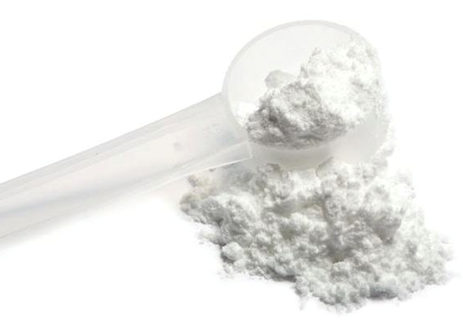Registered Associate Nutritionist /
Posted on
The majority of studies have focused on the effects of creatine monohydrate on performance and health; however, many other forms of creatine exist, HCL for example.
When it comes to bodybuilding and strength gains for athletes during resistance training, creatine is up there, arguably, with whey protein for a must-have in your arsenal of supplements. One of the main reasons for this is its tried, tested and proven results, making it a highly effective ally in building muscle.
How does it help? Supplementing creatine boosts the natural creatine stores in your body. Your muscle tissue stores creatine as phosphocreatine. Phosphocreatine synthesizes during high-intensity exercises, such as lifting weights, to provide your muscles with extra energy. Creatine pulls water into your muscle cells, increasing protein synthesis. It is then utilized by your body as a quick form of energy during high intensity, short-burst activities such as lifting a heavy weight or breaking into a sprint.
Creatine also helps your body to produce more ATP, which essentially helps your muscles to work harder and function better during a training session.
This wondrous supplement, however, comes in more than one popular form. But what is the difference, and which is better?
The difference between HCL and monohydrate
There is more than one form of creatine. The most common and popular are creatine HCL and creatine monohydrate.
While both HCL and monohydrate are utilized for the same end purpose, achieving the earlier mentioned results.
Creatine HCL, or creatine Hydrochloride, is molecularly bound with hydrochloric acid to enhance its solubility and overall absorption rates. This means that it will be broken down quicker in your body and more easily absorbed by your muscle cells. As it is more quickly absorbed, water retention is not a concern and by absorbing faster into your bloodstream, side effects are reduced.
The attached hydrochloric acid muscle also improves the stability of the creatine. This also implies that no loading phase is required as it is with monohydrate.
Let’s not get ahead of ourselves, though. Creatine monohydrate is the original supplement that has been around for the longest and is most widely used. As such there is more proof of its effectiveness than any other kind. One of the main pluses is its purity, being around 99.8 percent, not to mention it is the more affordable option.
So what does the research suggest?
Early studies have indicated that creatine HCL is more soluble than creatine monohydrate – but is that the real answer?
Effectiveness
The trouble is that creatine HCL has very little in the way of scientific research available. An unpublished study carried out by researchers at Vanderbilt University looked at creatine HCL and creatine monohydrate mixed in separate glasses of water. When the water was filtered, more HCL dissolved in the water, which doesn’t prove anything with regards to consuming except that it is easier to swallow.
The jury is therefore out without enough research proving the effectiveness of HCL on muscle development. If you are looking for a proven supplement guaranteed to work, it has to be monohydrate as many studies have been published on the effective performance of creatine monohydrate. This includes research on its ability to increase strength, recovery rates and the ability to build muscle.
Cost
You’ll get more bang for your buck with monohydrate. While HCL requires smaller daily doses, monohydrate compensates with a lower price per serving and greater volumes in each container.
Convenience
Expert research suggests that you only need a daily quarter of a teaspoon of creatine HCL for it to be effective, while monohydrate requires a loading phase of 15 – 20 grams and then 5 grams on a daily basis to keep your muscles saturated.
There is little proof of this, with no formal research to prove that HCL is, therefore, the most convenient of the two supplements. We like a supplement that we know will work, and while you can take the word of the experts that HCL is effective in tiny doses, making it the more convenient to take and transport, monohydrate is proven to work at the aforementioned dose. At the end of the day, how inconvenient is it to mix those extra measures into your shake?
Purity/Safety
This one is more or less a no contest as more than one study has revealed creatine monohydrate is safe and fine for people without pre-existing medical concerns. Its safety has also been proven in the longer term, which is good to know if you’re a repeat user of creatine supplements.
The ‘no contest’ has to rule as the same research doesn’t exist for creatine HCL. So if you want the reassurance of a proven, tested product, creatine monohydrate is the one for you. Monohydrate is also considered the purest form of creatine available.
“which is better creatine hcl or monohydrate”

